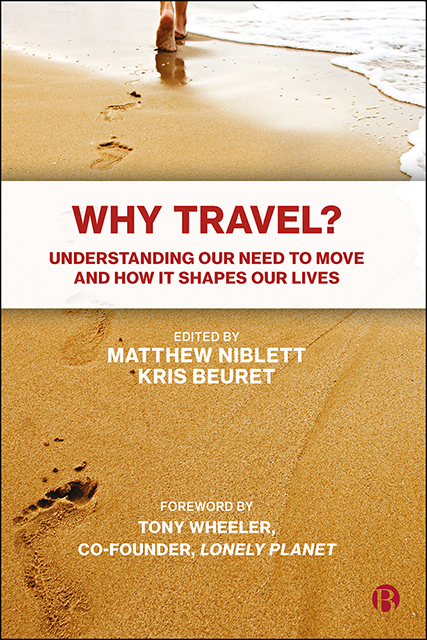Book contents
10 - Tourist Travel
Published online by Cambridge University Press: 21 April 2023
Summary
On 13 December 2012 a British woman alighted from an aeroplane in Madrid and was greeted ceremoniously as the one billionth international tourist of that year by the United Nations World Tourism Organization's (UNWTO) Secretary General. The tourist identified as the one billionth was occupying a symbolic role in the complexities of tourism statistics, but this event highlights the sheer scale of this type of travel. In the years since then – at least up until the 2020 COVID-19 pandemic – the tourism industry has become one of the largest and fastest growing sectors in the global economy (although also one of the hardest hit by the pandemic). In 2018, tourism accounted for over 10 per cent of global GDP – one in ten jobs; and the 1.3 billion international tourists per year were dwarfed by the number of domestic tourists, which were estimated at around four billion per year. Such numbers have been accompanied by enormous environmental and cultural impacts, both locally and globally.
How is it that tourism has grown to be such an integral part of contemporary life that such a huge figure has been reached? What are the roots of this form of travel? What motivates and what enables people to undertake such journeys? This chapter will address these questions, in order to offer perspectives on the book's central question ‘why travel?’ It will explore the history of tourist travel, and the development of different types of tourism, before pulling these strands together to look in more depth at the underlying motivations for holiday travel. The voluntary nature of most tourist travel enables us to gain valuable insights into travel motivations. From here the chapter will look forward, to examine prospects for the future given some of the negative impacts of tourist development and the environmental limits and technological opportunities that we might face. Since tourism can result in both costs and benefits for the destinations and for the global environment, understanding tourists’ expectations and motivations can help to ameliorate problems and to enhance the positives.
Who is a tourist?
To start, it is worth reflecting on the question ‘who is a tourist?’ We can begin with the idea of a tourist as a holidaymaker. We probably associate the idea of holidays with notions of pleasure and something that we undertake in non-work time. However, definitions of tourism are not as straightforward as we might think.
- Type
- Chapter
- Information
- Why Travel?Understanding Our Need to Move and How It Shapes Our Lives, pp. 185 - 204Publisher: Bristol University PressPrint publication year: 2021

